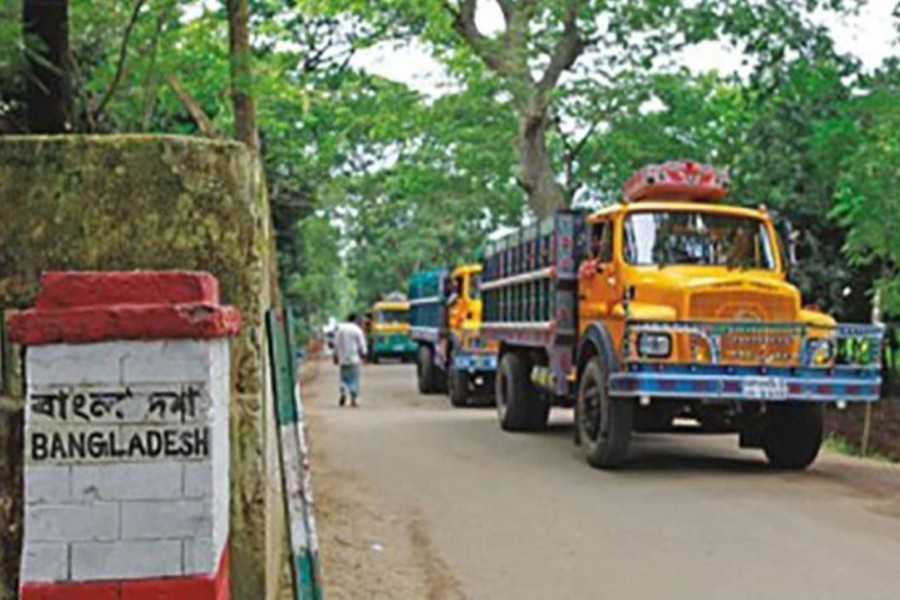A World Bank report titled 'Moving Forward: Connectivity and Logistics to Sustain Bangladesh's Success' released last Wednesday underlined some factors standing in the way of accelerating the pace of Bangladesh's progress. One important piece of statistic given at the report launching was that logistic costs being high in Bangladesh ranging from 4.0-5.0 per cent to 47.9 per cent of aggregate business sales made it difficult for the country to compete in the global market. Our experts from time to time did emphasise the fact but we couldn't have a shiny sheen as far as improving on competitiveness vis-à-vis some other countries is concerned. It is time we refocus on our priorities keeping competitiveness at the centre of our concerns.
What has been underlined by the presenter of the report Matias Herrera Dappe is that 'congestion and delays are pervasive', foremost among them being on the roads, but sea-ports and land-ports come in quick succession in terms of creation of gluts. The total effect of all these is enormous; and although not seen directly from the consumer's angle except through the price he pays, competitiveness takes a back-seat in the policy domain. The much-used GPS system has found average speed of trucks at a low rate of 19 kilometres per hour. Congestion-free roads would have lowered the logistics cost by 7.35 per cent, it has been assessed. There are additional social costs through greater carbon dioxide emission resulting, along with congestion, in a 1.2 per cent loss to the GDP. These figures should be concerning to the planners and revaluated before making corrective interventions in targets-specific areas. Another major hindrance has been the Chittagong Port, where export containers need four days and import containers take eleven days for disposal, persistent figures that the authorities should go all out to improve upon. This same port reportedly cleared containers in forty-eight hours or even less in the 2007-2008 periods, albeit the handling pressure at that time was much less, on overall basis. But this does not preclude due diligence that has been lacking in respect of enhancing the handling capacity of Chittagong port. Low draft is an issue that hopefully will be overcome when we have a deep sea port as reportedly envisioned at Matarbari in Cox's Bazar.
The story of the land ports are neither better. Turning to road congestion, it has been said that the Radcliff Line could take some blame especially on the railway and road fronts. One must remember here that the South Asian countries would come inexorably closer by the day, whatever be the line there. In Europe, over forty independent countries manage their traffic impeccably. Even during the Cold War era, trains would ply between Moscow and London unhindered. Radcliff Line cannot deter progress. It should in fact encourage all to come closer and make one huge economic community. Be that as it may, Bangladesh's main problem seems to be in its road, rail and water networks which can be overcome with a well thought out multimodal transport system underpinned by connectivity infrastructures being put in place. These must come under the purview of a clear and comprehensive programme for improving the quality of life with greater connectivity across the region.


